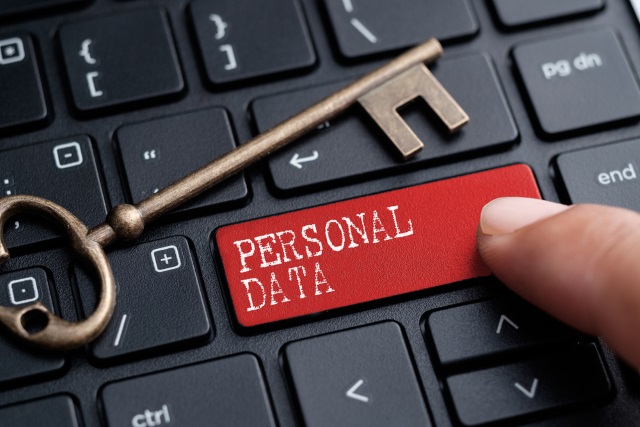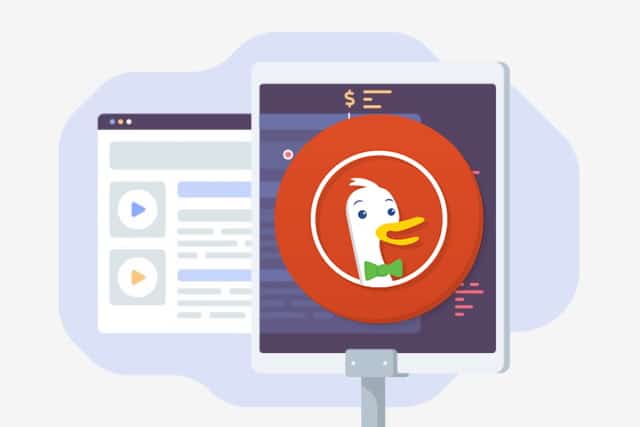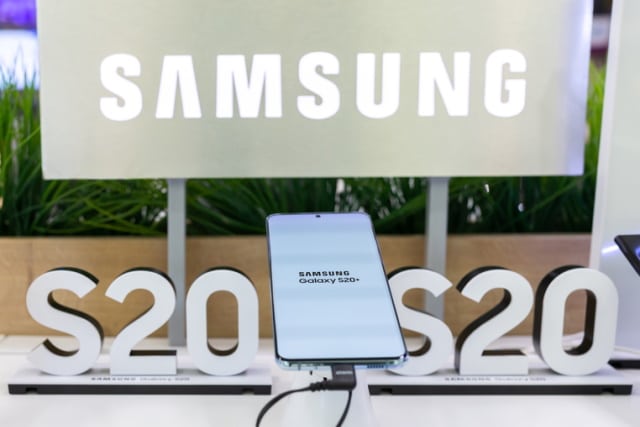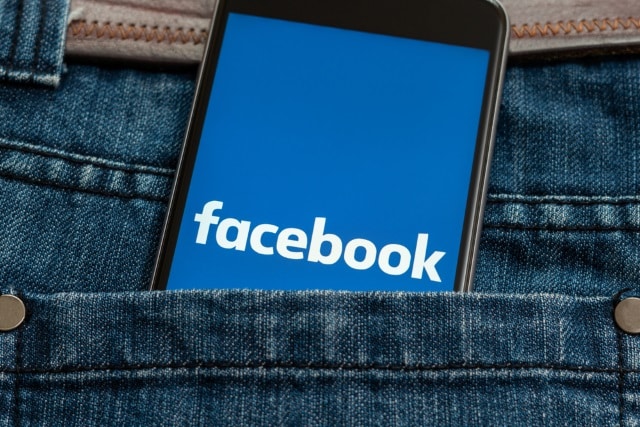Why is Zoom secretly sharing data with Facebook?
With so many people now working from home, video conferencing service Zoom has become a household name virtually overnight. But while millions of users appreciate the ability to connect with the office, colleagues, friends and family for free, a worrying privacy issue has been found.
The Zoom iOS app has been spotted sharing data with Facebook... even for users that don't have a Facebook account. So what's going on?

VPNs are tracking and recording their users
With more people working from home due to the COVID-19 crisis, it's concerning to find that top VPNs are recording their users and potentially leaking their data according to new research.
Comparison site VPNpro analyzed 114 VPNs and found that, of those, 102 have websites with trackers on them and 26 of those websites have 10 or more trackers. Many of these trackers involve third parties with reputations for not respecting user privacy.

Law enforcement agencies struggle to get to grips with digital intelligence
Law enforcement agencies have a growing reliance on digital intelligence with some 90 percent of cases now involving some form of digital device or cloud service.
A new report from digital intelligence solutions specialist Cellebrite collected date from over 2,000 law enforcement agency personnel, in over 110 countries to compile a report benchmarking the sector's day-to-day challenges.

Purism Librem Mini is a tiny Linux desktop
Desktops have largely fallen out of favor with home consumers, as they instead opt for laptops. Really, it isn't hard to see why this is -- a desktop PC often takes up a lot of room in a home, as it usually requires its own dedicated desk. Not to mention, you then have to add a keyboard, mouse, and monitor. You are then tethered to one place, unable to realistically work outdoors or at a coffee shop.
And yet, despite all the benefits a notebook has over a desktop, many people -- including yours truly -- prefers them. If you like the idea of a desktop, but prefer one that is very small (and won't take up a lot of space), there are plenty of options such as Intel NUC and Apple Mac mini. Today, we get another diminutive desktop option, but this one is designed for Linux and privacy. Yes, Purism is finally launching a tiny desktop, and it will come pre-installed with the Debian-based PureOS. Called "Librem Mini," the cute bugger has 4 USB-A ports on the front, along with a 3.5mm audio jack, and the power button. On the rear, there are two more USB-A ports, a single USB-C port, Ethernet, HDMI, DisplayPort, and the power port.

Privilege abuse widespread among infosecurity professionals
Almost 65 percent of security professionals surveyed at the recent RSA conference admit to accessing documents that have nothing to do with their jobs.
The study by risk analytics specialist Gurucul also reveals that nearly one in five (19 percent) of respondents admit to having abused their privileged access to view sensitive data. That number increases to 36 percent among those who've had a poor job performance review.

New tools help businesses understand consumers while protecting their privacy
We reported earlier today on consumer worries over who holds their data but for companies needing to collect data on their customers there's a tricky balancing act too.
Identity as a service company FullContact is enhancing its platform with new tools to better identify and reach customers in real and engaging ways while continuing to provide those customers control over their personal information.

Consumers worry their data is being held by brands they don't know
The average person's data is held by 350 brands and they probably don't remember 83 percent of them according to a new study.
The research from identity management platform Mine also finds 32 percent of data in people's 'digital footprint' didn’t even require users to open an account to store their information.

What impact will a Data Protection Act have in the US? [Q&A]
The US Congress is currently considering whether to pass a bill to create a Data Protection Act which would set up a federal data protection agency.
The bill, introduced last month, spells out how the agency would enforce data protection and privacy rights, putting Americans in control of their own data. But what exactly does that mean? And how would a bill with the sole goal of protecting individuals’ data effect the tech, financial and healthcare industries?

DuckDuckGo protects your online privacy with new open source Tracker Radar service
Google competitor DuckDuckGo is already well-known as a search engine that goes further than others to protect user privacy. Now the company has open sourced Tracker Radar, its data set that details thousands of domains that track you as you use the internet.
DuckDuckGo Tracker Radar is something that the company already uses itself to power the tracker protection in the DuckDuckGo Privacy Browser mobile apps and DuckDuckGo Privacy Essentials desktop browser extensions. Now it is being made publicly available, and developers are invited to contribute to the ever-growing list of trackers to further protect user privacy.

CCPA is a journey, not a destination
It’s been over a month since CCPA was implemented and businesses are struggling to comply. Smart organizations, however, know that compliance doesn’t have to be a sunk cost; in fact, it can be used as a competitive differentiator. Instead of playing catch up with global, national, and state data privacy regulations, businesses should consider implementing broad policies and protections for consumer information that will prepare the organization for any future legislation.
For all the criticisms of GDPR -- and there are many -- the EU legislation set an important precedent for data privacy laws internationally. Businesses that are already GDPR-compliant are in a good position to satisfy requirements from new national and state data privacy laws.

What happens when your identity is stolen on social media? [Q&A]
Scams involving social media and online dating sites are on the increase. So it's not surprising that recent research shows a majority of people are now worried about identity theft and account hijacking.
But what happens when your identity gets stolen? And what can you do to protect yourself from this kind of scam?

FCA reveals data breach that exposed personal details of people complaining about UK's financial watchdog
The UK's financial watchdog, the Financial Conduct Authority (FCA), has revealed details of a data breach that took place last year.
The FCA says that personal details of people who had made complaints against the watchdog were exposed following the online publication of a response to a Freedom of Information Act request. Among the exposed information are the names and numbers of those who had lodged complaints.

Mozilla is enabling encrypted DNS-over-HTTPS (DoH) by default for US Firefox users
Firefox users in the US will soon have DNS-over-HTTPS (DoH) enabled by default. Mozilla is in the process of rolling out the privacy- and security-focused feature after an intensive period of testing.
DoH is an option for anyone outside of the US, but it will have to be manually enabled. Once enabled, DNS lookups are routed through Cloudflare or NextDNS using an encrypted HTTPS connection, hiding it from third parties such as your ISP.

Samsung admits to data breach unconnected to mysterious Find My Mobile 1 push notification
Last week, Samsung customers around the world were confused by the appearance of a mysterious push notification which simply read "1". The company revealed that the Find My Mobile notifications had been sent out by mistake as part of a test, but there was something even more worrying.
In addition to the random notification, some users reported that they were able to access personal data of other users, including names, addresses and partial payment card details. Samsung has now admitted to the data breach and says it will be contacting those affected.

Facebook will pay you for your voice recordings
If you feel you should be able to benefit financially from sharing information with Facebook, there's some good news: the company is willing to pay you for your voice recordings.
The scheme is part of the social network's Pronunciations program, and it sees Facebook trying to improve its speech recognition capabilities. But if you're hoping to get rich, you might be a little disappointed.
